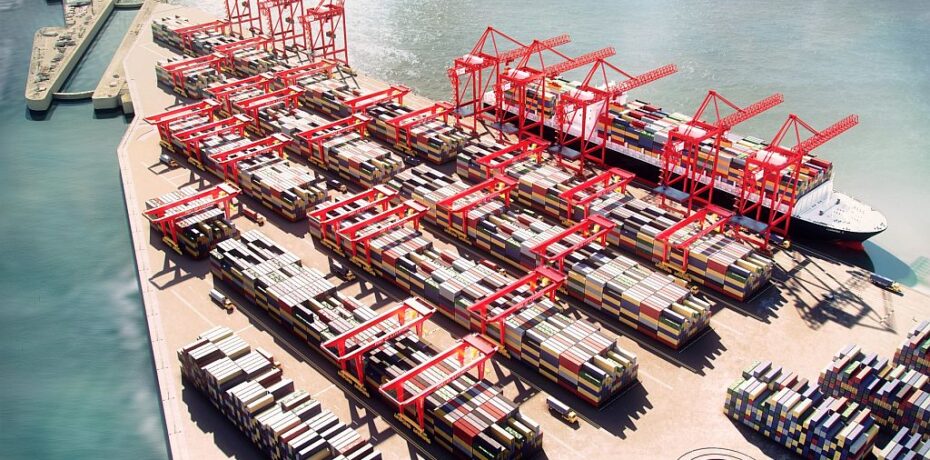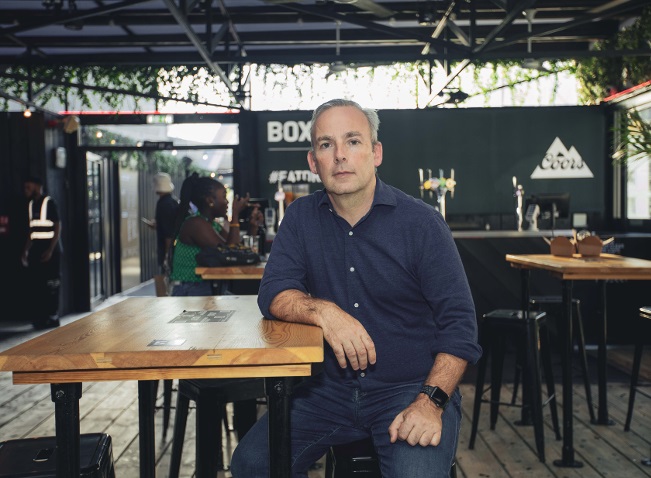OPINION | Has logistics outgrown local planning?
 I recently attended a workshop organised by the RTPI to discuss if there would be merit in producing a Plan for the North to guide the aspirations and concept of the Northern Powerhouse, writes Sebastian Tibenham.
I recently attended a workshop organised by the RTPI to discuss if there would be merit in producing a Plan for the North to guide the aspirations and concept of the Northern Powerhouse, writes Sebastian Tibenham.
After an initial shudder of dread, most attending agreed that a strategic plan setting out the context for major infrastructure investment would prove helpful, particularly for transport infrastructure. Obvious questions over who would produce, fund and control such a document and the weight to be applied to it followed. Most also agreed that we certainly did not need a further layer of land use planning policies, which would grate against the objectives of the NPPF and undoubtedly delay the emergence of up-to-date Local Plans, thereby quelling power to the so-called Powerhouse. Indeed, whilst Local Plan progress has been slow in the main, the truth is there is no reason why the vast majority of land uses cannot be planned for at a local level.
The only sector in which we are finding some difficulty in articulating need and demand as part of a Local Plan process is in relation to the logistics sector. Traditional assessments of historic land take-up trends are largely irrelevant because the growth that is driving the sector is new and dynamic and is forecast to grow substantially.
The sector is booming and nowhere more so than in the North West. The Liverpool SuperPort, Atlantic Gateway, HS2, the major population centres, growing car industry and substantial growth in e-commerce retailing are all pushing in one direction when it comes to the demand for large logistics space. The problem is that the demand is often driven by regional scales of economy, yet the locational requirements of the modern logistics operator mean only a refined and select few locations are genuinely suitable. The delivery of these are often incumbent on a single local authority wanting to take a bold step in recognising how they can support wider economic needs than their own.
At Pegasus we have quantified the growth in the e-commerce retailing over the next 10 years for each region in the UK (see link to document). Growth in this sector for comparison goods e-retailing is expected to exceed £40bn in 2015, reaching £85bn in the UK by 2025. If this expenditure was to be converted into standard retail floorspace, it would support 17m sq m. Converting this level of expenditure to the land take associated with modern logistics floorspace means the North West requirement for just this single part of the sector could be in the region of 5,000 acres (20 sq m) by 2025.
Assuming the Northern Powerhouse comprises of the North West, Yorkshire & Humber and the North East, the requirement could reach 40 sq km. That’s an area the size of Preston or York.
An efficient and balanced distribution of logistics sites across the North West would ultimately create jobs and economic growth, cut down on journey miles, CO2 emissions and road congestion.
Perhaps the Greater Manchester Spatial Framework will help to lead the way and provide the economies of scale to quantify and address some of this need. However, neighbours will clearly need to play their part given the extent of land take required and the need for schemes to be located close to the major population centres and strategic highway network.
I genuinely hope we won’t need to rely on a Northern Plan to realise and deliver this growth and associated benefits. However, without bold decisions and a clear analysis of anticipated growth, I fear the Local Plan system will fail to quantify and address what represents one of the key land use planning issues that will face us over the next decade.
- Sebastian Tibenham is director of Pegasus Group.





Great piece Seb. So important for the competitiveness of UK PLC
By Tatton Estate
“Perhaps the Greater Manchester Spatial Framework will help to lead the way …”
Yes, they are building a port in Liverpool so let’s make sure Manchester redefines all the benefits so that all the jobs go to the GM area and not to the city at the point of entry/exit. Perhaps the Liverpool City Region should be the primary beneficiary of the growth in the logistics sector.
By Paul B
My point was that the only evidence based document for a development plan that I have seen that has made any attempt to quantify the demand for logistics at a regional scale is the one drafted for the GMSF. I wasn’t suggesting for one moment that it all goes to GM. Indeed, Merseyside and Warrington will need to deliver lots but many other authorities will need to play their part too, particularly if the main population centres of the NW are to be adequately served.
By Seb